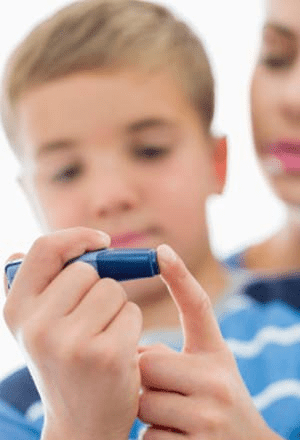For parents of children with diabetes, school supplies and rectified bedtimes are the least of their worries. Having diabetes forces you to have extra things to consider, in the case of your child: How do I make sure my child is adequately prepared for school? Will my child be able to receive care for their diabetes at school? How will they take their medications at school? Who will help in case of an emergency? If you have a child with diabetes, here are some tips to help you ease your concerns.
Build a Management Plan
Work closely with your child and their doctor to develop a specific diabetes management plan while your child is at school. This is a good time to (if you haven't already) teach your child how to maintain a diabetes log book so that they can provide accurate feedback in their new environment. A diabetes log book can contain information such as your child's blood glucose levels, their meal plan, their medications and dosages, suggested treatment plans for low and high blood sugar levels, and emergency contact information. You can find some examples of a diabetes log book here and also learn different ways to maintain one. Need help building meal plans for your child? Discover 16 Healthy Lunch recipes here.
Inform and Educate Teachers and School Faculty
It's good practice to get to know your child's teachers and the faculty they will interact with on a daily basis. Not only can they help ensure your child's success, but they can also be essential to your child's diabetes care plan. Set up a meeting with your child's teacher and principal to discuss your child's individual needs and to share their diabetes management plan. Teach them how to use your child's blood glucose meter and how to administer your child's medication. Additionally, explain to them the signs and symptoms of different blood sugar levels and advise them on how they can help accommodate your child's needs. Finally, inform them of what your child is able to do on their own as part of their diabetes management and let them know the tasks your child is responsible for so that they can ensure that the diabetes management is being followed in full.
The American Diabetes Association also provides a tips sheet for teachers of students with diabetes, share this with your child's teacher to help encourage them to be part of your child's care plan.
For more resources regarding diabetes:
Be Prepared For Emergencies
As part of educating your school's faculty and staff, it's important to also prepare them for emergency situations. Provide your child's teacher with instructions on how to respond in the case of low blood sugars. Make sure that they understand the importance of treating this situation right away to avoid a true emergency. If allowed, provide the teacher and staff with a supply of fast-acting sugars (such as glucose tabs or juice) and stock extra snacks in the classroom or with your child's daily food.
For your child, help them understand and recognize the symptoms of low blood sugars and teach them to immediately seek help when they feel this way. Have your child carry instructions with them on how to manage this situation. Finally, have your child wear a medical ID bracelet to help indicate to others that he or she has diabetes. As part of your emergency response, be sure to inform your supervisor and team that your child has diabetes so that in the case of an emergency and your attention is needed, it won't come as a surprise to the people you work with.

As part of your child's diabetes management plan, it's important to have them involved every step of the way from planning, to building to implementing and even to them being an active part of the plan. Support your child as they gradually learn about their diabetes and encourage them to become more involved in their management. Gradually give them tasks to perform as part of their management plan that they can do safely and correctly while they are in school. Teach them about their medications and their diabetes tool, so that while they may not be able to administer them on their own, they can educate others on proper usage.
When it comes to back-to-school and children with diabetes, there's a lot to consider. But when you make an effort to work together and ensure your child has the best support systems in and out of your home you can guarantee your their success and health for this school year and the many more to come.
If you have tips for back to school let us know in the comments down below.
TheDiabetesCouncil Article | Reviewed by Dr. Sergii Vasyliuk MD on June 04, 2020







